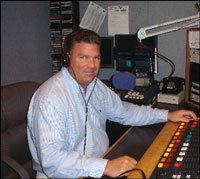Thursday, October 6, 2011
Steve Jobs: 1955 - 2011
On the surface I would seem to be the last guy to pay tribute to Steve Jobs, the founder of Apple and former CEO who died Wednesday at age 56 some seven years after first being diagnosed with cancer. I’m technically-challenged and at this point have never owned an iPhone or iPad….I do have an iPod but frankly I don’t know how to operate it very well and it keeps playing the same Dave Matthews songs. However Jobs’ genius to me is summed up in the 2005 commencement address he gave at Stanford University of which I have a copy which I keep in my office. It chronicled his ups and downs, from being born to a young, unwed college graduate student who put him up for adoption. He blew much of his parent’s savings before dropping out of Reed College but he didn’t leave the school. Instead he started taking classes at the same school in subjects that interested him, including calligraphy which ironically helped him a decade later during the resign of the first Macintosh computer. But let me go back a bit because at this time he didn’t have a dorm room because he really wasn’t enrolled in college. Jobs slept on the floor of some friend’s rooms and returned Coke bottles to get some money for food and every Sunday walked 7 miles across town for a free meal at a Hare Krishna temple. And in his speech he told the Stanford grads that while they may not sound great…he was happy because he was doing what he wanted to do.
He also went on to recount the story that at age 30 he lost a battle with the co-founder of Apple and was out of a job when the Board of Directors sided with the other guy. But he went on to start another company which eventually was bought out by Apple who then returned Jobs to the top position. It was during this time that he met the love of his life and while it was not easy to accept Jobs shared with the graduates that his original firing was actually the best thing that could have happened.
This speech was only about a year after he was diagnosed with pancreatic cancer at which time his doctor told him he would last only six months. He kept waiting to die during this period but things actually got better and he thought he had beaten the disease. But it didn’t matter because he learned during this time that Death is very likely the single best invention of Life as it clears out the old to make way for the new. He told the students that right now they are the new but they would gradually become the old. He added “your time is limited, so don’t waste it living someone else’s life and have the courage to follow your heart and intuition. They somehow know what you truly want to become. Everything else is secondary.”
Subscribe to:
Post Comments (Atom)


No comments:
Post a Comment